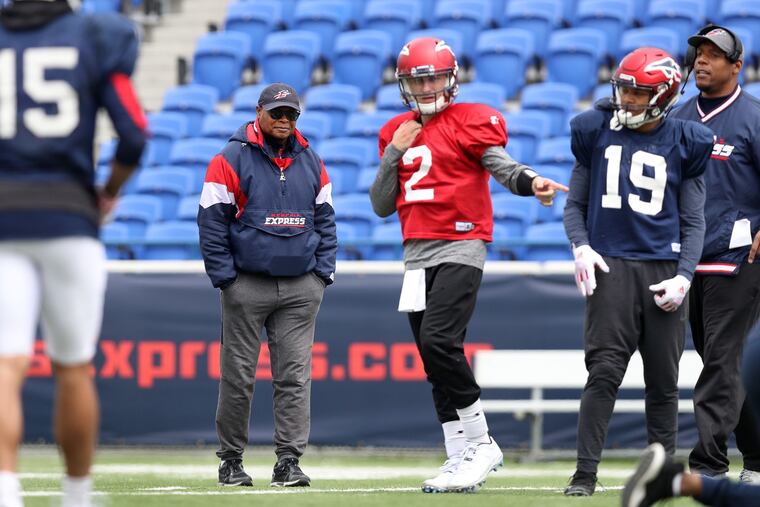AAF ends suddenly prior to league’s playoffs: ‘It’s sad to end this way’
The upstart spring football league will shut down prior to its nationally televised playoffs.

The Alliance of American Football has abruptly suspended all operations prior to its nationally televised playoffs and terminated most of its staff.
The AAF, an upstart football league that had hoped to become a sustainable professional spring league, informed players, coaches, and other employees in a letter that it was suspending all football operations Tuesday night.
“As part of this process, we expect to keep a small staff on hand to seek new investment capital and restructure our business," said the letter, which was written by the league’s board of directors.
It’s a remarkable reversal from February, when the AAF premiered on CBS to impressive ratings, which were on par with an average NBA game. But the league ran into payroll problems after Week 1, leading Tom Dundon, the billionaire owner of the Carolina Hurricanes, to take control of the league with a $250 million investment (though Dundon has only reportedly spent about $70 million).
Dundon had reportedly pressed the NFL on making the AAF a developmental league immediately, something the NFL collective bargaining agreement wouldn’t allow. The AAF’s original founders, Charlie Ebersol and Bill Polian, disagreed with Dundon’s approach, according to a source with knowledge of the discussion. Polian admitted as much in a statement issued Tuesday afternoon.
“I am extremely disappointed to learn Tom Dundon has decided to suspend all football operations of the Alliance of American Football,” Polian said, adding that he and Ebersol thought Dundon’s investment would allow the league to finish out its inaugural season and pay off its creditors.
“The momentum generated by our players, coaches and football staff had us well positioned for future success. Regrettably, we will not have that opportunity," Polian said.
Dundon was not available for comment.
Ebersol told the Inquirer prior to the league’s debut that it had been built to be sustainable for at least a couple of seasons. The interest from investors was largely based on the league’s app, which enabled people betting on sports to place wagers in real-time while watching a game.
“Look, you can’t raise money to launch a football league. Anyone who tells you they can is lying, unless you’ve got a quixotic billionaire who just wanted to spend all of his money,” Ebersol said. “We raised money as a technology business … The actual business is data, data compression and data delivery manifestation, or artificial intelligence or machine learning.”
According to the NFL Network’s Albert Breer, the prevailing thought from people in the league was that Dundon purchased a majority stake in the AAF simply to take control of the league’s coveted gambling app. But sources inside the league told the Action Network’s Darren Rovell such a move would be illegal.
The AAF launched with eight teams divided into two divisions, mostly scattered throughout the south in cities with no local professional football team, such as San Antonio, Birmingham, and Memphis. The league attracted some big names as head coaches, including Hall of Famer Mike Singletary and former Florida Gators head coach Steve Spurrier.
“We’re all disappointed, but on the other side, we got to be the champs, right,” Spurrier, who coached the league-leading Orlando Apollos, told reporters Tuesday afternoon. “I’m more disappointed for all the players that believe, ‘This is my chance to show people this, that and the other that I can play this game.' ... It’s sad to end this way.”
Johnny Manziel, the 2012 Heisman trophy winner who signed with the Memphis Express in March, offered some sensible advice to other players signed with the league.